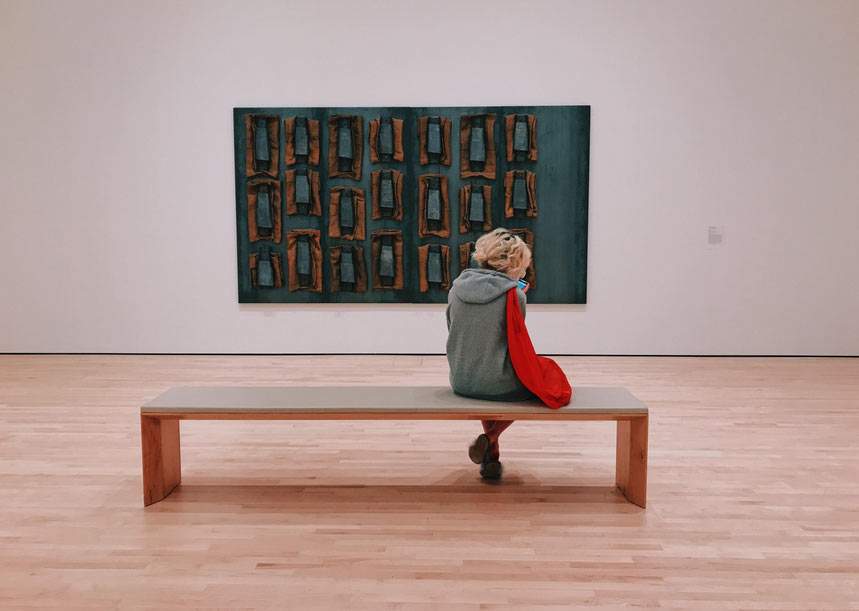TheInternational Council of Museums (ICOM), the body that represents museums internationally, released a report a few days ago on how museums are faring during the Covid-19 coronavirus pandemic: the survey, conducted between April 7 and May 7 and published on May 26, covered five topics (current situation, expected economic impact, digital, security, external professionals) and received nearly 1,600 responses from museums and professionals in 107 countries on 5 continents. The data, ICOM points out, are not representative of all museums, but the responses are nonetheless useful for learning about the climate in which museums are working (a “climate of uncertainty,” ICOM writes in the report, “that needs a response, from governments, to ensure the future of museums and the priceless heritage they house”).
Regarding the situation of museums, it was found that 94.7 percent of institutions were closed during the period covered by the research (Europe and Oceania are the continents with the highest closures, having touched a peak of 97.1 percent, while Africa is where they were closed the least, at 85.3 percent). Globally, 84% of museum staff worked under smart working, but some also physically went to the museum (33% of the total: the sum exceeds 100% because it was a multiple-choice question): for 16% of workers there was mandatory vacation, temporary leave for 14% and dismissal or non-renewal of contract for 6%.
On the topic ofeconomic impact, 82.6 percent of museums worldwide speculate about reducing programs, 29.8 percent about cutting back on staffing, 40.4 percent about losing public funds, 42.5 percent about losing private funds, and even 12.8 percent consider the risk of having to close the museum permanently to be serious (to which, however, is added an equally worrisome 19.2 percent who do not know whether or not the situation will lead to closure). Fears of permanent closure are less prevalent in Europe (8%), North America (10%), Asia (10%) and South America (12%) but reach peaks of 24% in Africa, 39% in Arab countries, and 27% in Oceania.
As for digital, 55.7% of museums engaged in online activities, but not full-time, while there was full-time web activity for 26.1% of museums, and the remaining 18.3% did no digital activities. 47.49% increased social activities, 13.36% increased newsletters, 17.97% increased activities on online collections, 16.16% increased virtual exhibitions, 18.80% increased live events, 10.39% increased podcasts, and 19.21% increased quizzes or contests. The majority, on the other hand, did not increase activities much: although only 7.67% avoided focusing on social, they did not increase activity on online collections 33.31% of museums, virtual exhibitions 49.46%, live events 56.47%, newsletters 31.66%, podcasts 68.26%, and contests 55.15%.
Regarding preservation activities, 7 out of 10 museums have carried out the normal checks on areas open to the public, repositories, and crime prevention systems, while 10% have increased them. However, there is also 11 percent of museums that felt that the usual measures were insufficient or that not enough additional measures were taken to address risks on maintenance.
Finally, regarding the situation of outside professionals, 60.2% of them worked from home, 7.3% on site, 6.6% were given mandatory leave, 16.1% were given temporary leave, and 22.6% did not have their contracts renewed or were fired. 54.5% of the external consultants described Covid-19 as a threat to their future (a percentage that drops to 12.8% for those who do not think so, while 32.8% cannot give an answer). 56.4 percent of professionals fear repercussions on their compensation, while only 8.6 percent fear they will have to close their business (50.4 percent do not see it as a threat, while 41 percent cannot answer).
“ICOM,” the report’s keynote concludes, “calls on policymakers to allocate significant funds to assist museums and their professionals so that they can survive the crisis and continue their vital public service mission. Restoring our economies and caring for our societies after the Covid-19 crisis will be long and complex processes. Museums, as major players in local development and as unparalleled places for people to meet and learn, will play an important role in rebuilding the local economy and repairing the social fabric of affected communities.”
 |
| Covid-19 could close 12% of the world's museums. The findings of the ICOM report |
Warning: the translation into English of the original Italian article was created using automatic tools. We undertake to review all articles, but we do not guarantee the total absence of inaccuracies in the translation due to the program. You can find the original by clicking on the ITA button. If you find any mistake,please contact us.